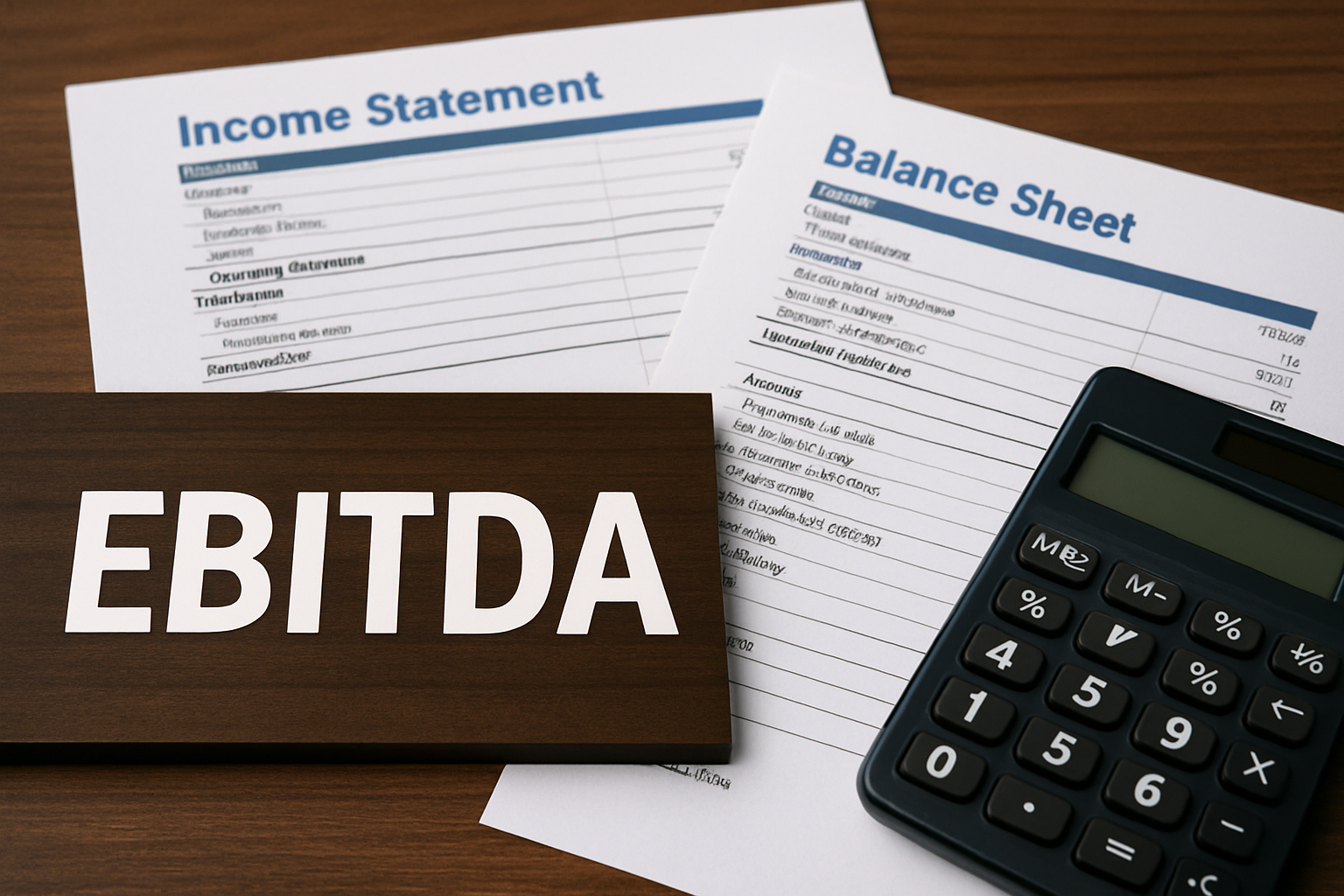Why Small Businesses Need a CFO

Small businesses often operate with lean teams and limited resources, which means that every role within the company needs to be filled with the right person. One role that can be particularly important, but is often overlooked, is the Chief Financial Officer (CFO). While many small businesses may not think they need a CFO, there are several reasons why having one can be critical to their success.
Financial Strategy
A CFO can help a small business develop a comprehensive financial strategy. This includes identifying areas where the business can cut costs, creating a plan for revenue growth, and establishing financial goals that align with the overall business strategy. A CFO can also analyze financial data and trends, providing insights that can help a small business make informed decisions about investments and financial risks.
Cash Flow Management
Small businesses often struggle with cash flow management, and a CFO can help address this issue. By closely monitoring cash flow, a CFO can help a small business identify potential cash shortages and take steps to prevent them. They can also help the business develop a plan to manage receivables and payables, and optimize their cash flow to ensure that they have the funds they need to operate and grow.
Financial Reporting
A CFO can provide timely and accurate financial reporting that helps the business understand its financial performance. This includes creating financial statements, analyzing financial data, and presenting reports to management and investors. A CFO can also ensure that the business is compliant with financial regulations and best practices, reducing the risk of financial penalties or legal issues.
Risk Management
A CFO can help a small business manage financial risk. This includes identifying potential risks, such as market changes or economic downturns, and developing strategies to mitigate them. They can also help the business manage risks associated with investments, such as mergers and acquisitions or new product launches. By taking a proactive approach to risk management, a CFO can help a small business avoid financial losses and maintain stability.
Investor Relations
If a small business has investors or is looking to raise capital, a CFO can be critical to their success. A CFO can help the business prepare financial projections, pitch to investors, and manage investor relations. They can also provide insights into the financial implications of potential investments, helping the business make informed decisions that are in the best interests of its stakeholders.
Conclusion
While many small businesses may not think they need a CFO, there are several reasons why having one can be critical to their success. A CFO can help a small business develop a financial strategy, manage cash flow, provide financial reporting, manage risk, and manage investor relations. By providing financial expertise and guidance, a CFO can help a small business thrive and grow, even in challenging economic conditions. If you're a small business owner and haven't considered hiring a CFO, it may be worth exploring the potential benefits that this role can bring to your business.

If you’re running a Shopify-based business and you’re still not sure whether you should be using cash or accrual accounting, this is the breakdown you actually need.
The Basics: Cash vs. Accrual (Plain English)
Cash basis accounting means nothing touches your books until it touches your cash account. You don’t record a sale until the money shows up in your bank.
Accrual basis accounting means you record the transaction when it actually happens — not when the cash moves. If you ship a product today but don’t get paid for 30 days, you still record the sale today. You record it as accounts receivable, then swap that out for cash when it hits the bank.
What Works Best for E-Commerce
For most e-commerce businesses, the right answer is accrual— or at least a modified accrual system.
If you’re selling DTC and don’t have receivables, that’s one thing. But you do have inventory. And inventory is likely your single largest asset, and your biggest expense is the cost of that inventory when it is sold.
You also probably have accounts payable — vendor terms, delayed payments, etc. If you’re not recording those, you’re missing critical parts of your financial picture.
So even if you don’t have receivables, you still need accrual for payables and inventory. Without it, your books aren’t giving you the full story.
Why Cash Basis Gets Dangerous at 7 Figures
Once your business scales, the cracks in cash basis accounting start to show.
Say you start selling wholesale. Larger orders, delayed payments. If you’re not recording sales when they happen, your revenue is disconnected from reality.
Same thing on the inventory side. More sales means more inventory. More vendor terms. You need to know how much cash is tied up in product and what you owe vendors. You can’t track that without accrual accounting.
Sticking with cash basis when you’re at or above seven figures means you’rerunning a complex business on a bookkeeping method built for lemonade stands.
When Cash Basis *Might* Be Okay
There are rare cases where cash basis works. Usually it’swhen:
- Your inventory is homogenous (like bulk vintage clothing)
- You don’t sell wholesale or give customer terms (your customers pay when or before they get the items)
- You pay for inventory up front (no payables)
And even then, you’re limited in how much insight you can get. Cash basis meansyou only see what’s happening when the money moves — but a lot happens beforeor after that.
So yes, the IRS allows some businesses to expense inventory as they buy it —but for most e-commerce brands, accrual is the better long-term choice.
Still using cash basis accounting? Or unsure if your books actually reflect reality? Lonely, and just want to talk to someone? Book a call and let's chat!

If you’re running a Shopify-based business — or thinkingabout selling one — you’ve probably heard the term “EBITDA” thrown around. But what the hell is it actually measuring, and why does it matter? This post breaks it down in plain english.
What Is EBITDA (In Plain English)
EBITDA stands for Earnings Before Interest, Taxes,Depreciation, and Amortization.
It’s a way to measure the cash flow generated by the operations of the business, without the noise of non-operational accounting entries.
By backing out interest, taxes, depreciation, and amortization, you’re removing costs that aren’t directly tied to day-to-day operations and would look totally different under different ownership.
It gives you a number that reflects how much profit the business actually produces from operations — a useful way to compare performance across companies, time periods, or potential buyers.
Why EBITDA Matters If You're Selling (Or Scaling)
When you're valuing a business, one common method is toapply a multiple to EBITDA. A software company might be worth 20× EBITDA. A manufacturing business might go for 10× (bote these are just for illustration, please reach out if you want an actual range for your company).
The idea is to look at comparable businesses, what they sold for, and how that sale price relates to their EBITDA. Then you apply a similar logic to your business to get an estimate of what it might be worth on the open market.
Yes, there are other valuation methods — based on revenue, assets, and sometimes just hope and dreams. But EBITDA gives you a cash-based, semi-objective number you can work from.
Normalization vs. Manipulation
Let’s talk about a dirty little secret: most small business owners run some personal expenses through their business.
That conference in San Diego? You stayed three extra days. Did you reimburse the company? Probably not.
This is where “normalizing” EBITDA comes in. You add back expenses that technically hit EBITDA but aren’t really business-related or wouldn’t existunder new ownership — travel, meals, vehicle expenses, etc.
So is EBITDA manipulated? Sometimes, yeah — but it’s more often just adjusted to reflect the true economics of the business.
What founders *should* be worried about isn’t manipulation — it’s accuracy. Most small businesses don’t intentionally fudge their numbers — they just have sloppy books. Bad bookkeeping, unreconciled accounts, missing entries. That’s what really skews EBITDA.
How to Calculate EBITDA in a Shopify Business
Step one: clean your books. If your inventory, receivables,or payables are wrong, your EBITDA will be too.
For product-based e-commerce companies, COGS is your biggest expense and inventory is usually one of your biggest assets. If those aren’t tied out, the whole foundation crumbles.
Once your balance sheet is clean, identify any expenses that should be normalized — personal travel, car payments, anything that wouldn't show up under different ownership.
Then do the math:
- Start with Net Income from your P&L
- Add back Interest Expense
- Add back Income Taxes (not payroll taxes — only income-based taxes)
- Add back Depreciation
- Add back Amortization
That’s your EBITDA. It’s a measure of the business’s operational cash flow. And it’s only meaningful if your books are tight and your normalizations are honest.
Thinking about selling? Trying to get a real handle on cash flow? Afraid your books are a mess? Just want to chat and talk about sports? Book a call here


